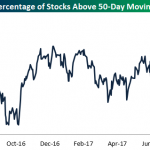<<< Read: Gold Is Not Money
I opened a blog post on 7th October with the statement that gold was money in the distant past and might again be money in the future, but isn’t money in any developed economy today. I then explained this statement. The post stirred up a veritable hornet’s nest, in that over the ensuing 24 hours my inbox was inundated with dozens of messages arguing that I was wrong and a couple of messages thanking me for pointing out the obvious (that gold is not money today). The negative responses were mostly polite*, but in many cases went off on a tangent. Rather than trying to respond individually, this post is my attempt to rebut or otherwise address some of the comments provoked by the earlier post on the same topic.
In general, the responders to my earlier “Gold Is Not Money” post made the same old mistakes of arguing that gold is an excellent long-term store of value, which is true but has nothing to do with whether gold is money today, or confusing what should be with what is. Some responders simply asserted that gold is money because…it is. Not a single responder provided a practical definition of money and explained how gold fit this definition. That’s despite my emphasis in the earlier post that before you can logically argue whether something is or isn’t money, you must first have a definition of money.
Due to the fact that many different things (salt, tally sticks, beads, shells, stones, gold, silver, whiskey, pieces of paper, etc.) have been money in the past, a reasonable definition of money MUST be based on money’s function. Also, the definition must be unique to money. In other words, when defining money you must start with the question: What function does money perform that nothing other than money performs?
“General medium of exchange”, meaning the general enabler of indirect exchange, is the function performed by money and only by money within a particular economy. Now, there are certainly pockets of the world in which gold and other items that we don’t normally use as money in our daily lives do, indeed, perform the monetary function. For example, there are prisons in which cigarettes are the most commonly-used medium of exchange. It is certainly fair to say that cigarettes are money within the confines of such a prison, but I want a definition that applies throughout the economy of a developed country. Gold is not money in the economy of any developed country today, although there could well be small communities in which gold is money.














Leave A Comment